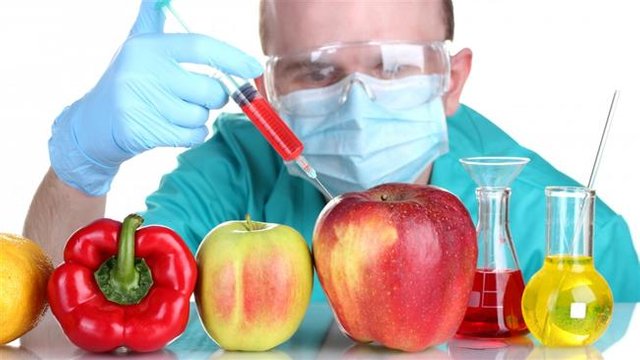Genetically Modified Foods
Transgenic foods or genetically engineered foods began to be introduced on a larger scale on the world market, particularly in the American market, in 1996 and since then consumers in major European countries have been openly opposed to the introduction of these foods on the market, particularly without a labeling that clearly identifies whether or not the ingredients used in a particular food product have been genetically engineered.

In Portugal, a country of soft customs, little has been said or written about the subject and there is no real movement that discusses the potential danger of this type of food for human and environmental health.
For all that I have read and studied on the subject I am manifestly against the use of transgenic foods and I think that we take a great risk by allowing them to enter our homes, most of the time in a totally retracted way. Currently on the American market, transgenics of corn, soybeans, potatoes, squash, papaya as well as milk and other dairy products derived from cows treated with a genetically engineered hormone (rBST) are available and there is already a large variety of genetically engineered enzymes that are used by the food processing industry.
If you do not know, soybeans and corn derivatives for example, are used in hundreds of products on supermarket shelves, such as margarine, biscuits, yogurts, chocolates, etc.
In fact, genetic manipulation is a worldwide scientific experiment in which we are all guinea pigs and from which we do not know at all what the results will be. While a pharmaceutical product often requires 15 years of rigorous testing to be approved (and still often withdrawn from the market) GM food has not been subject to stringent scrutiny, taking into account the medium and long term effects on health and the environment. This is because the ones who seem to profit from this process are half a dozen multinational corporations that have a huge influence with governments and the world's intellectual and economic "elite". According to a recent Time article, about 4500 GM plants have been tested and for biotech companies this represents a sales increase from $ 75 million to $ 1.5 billion per year in just two years.
The philosophy underlying genetic manipulation is that nature is not perfect and that science can replace its role with better results: we can have better crops, avoid hunger in the world, and have plant species that are more resistant to pests. Unfortunately, none of these assumptions is proven and the problems mentioned exist and will continue to exist as long as many modern economic and social realities do not change.
GM crops are unpredictable and there are numerous articles in leading medical journals warning you of its possible consequences. The New England Journal of Medicine has warned of the risk of a rise in deadly allergies and has criticized the Food and Drug Administration for favoring the industry over consumer protection.
What are genetically engineered foods actually?
These are foods whose genes have been modified or manipulated by humans so that they exhibit characteristics they would not have in their natural state. Genetic engineering crosses species that would not naturally intersect. Thus, for example, genes from a fish were crossed in strawberries and tomatoes.
The crops where most genetic manipulation is used are soybeans, corn, rapeseed and cotton. Most GM organisms exist in two varieties: "insect resistant" and "herbicide tolerant". Insect-resistant crops are also called "plant pesticides" because the plant is considered (and regulated) as a new insecticide. The plant as it grows produces an insect toxin in each cell and throughout the growing season. When we eat insect resistant GM maize, for example, we are eating a pesticide.
In the past, a farmer had to be careful about using herbicides because they could destroy the crop. Now the crop is genetically altered so that it is not damaged by the chemical. As a result, farmers can use far more pesticides, which will end up on our plate at mealtime.
At the same time, when GO organisms are released into the environment any damage they produce is irreversible. GO organisms are living organisms and can multiply, mutate and reproduce with other living organisms for many generations. Potentially, the biological pollution produced by genetically engineered organisms is far more dangerous than chemical or nuclear pollution.
These techniques frighten me because I believe there is a natural order to which we must not and can not escape. To play God is dangerous, lethal, and shows great arrogance toward a Nature that is mysterious but generous, just and perfect. There are ways to feed the whole world if we are to use agriculture methods and more balanced and sustainable lifestyles.